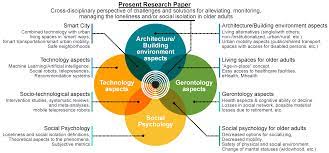Social isolation can have a profound impact on individuals, particularly in adulthood. While it may seem like a mere inconvenience, recent research highlights that the effects of isolation can be far more dangerous than we might realize.

Understanding Social Isolation
In this section, we’ll delve into the concept of social isolation, explaining what it means and why it becomes increasingly relevant as we age. Discuss the various physical and mental health risks associated with social isolation, such as increased stress, depression, and the potential for chronic health conditions. The hidden dangers of social isolation in adulthood.
The Cognitive Impact
Exploring how social isolation can affect cognitive functions, including memory, reasoning, and overall brain health. Examining studies that link social isolation to a shortened lifespan, and how maintaining social connections can contribute to a longer and healthier life. It plays a crucial role in shaping an individual’s health outcomes. Addressing social isolation is becoming increasingly important in public health efforts to improve overall well-being. Prolonged social isolation can lead to symptoms of depression and anxiety. The lack of social interaction and emotional support can exacerbate these conditions or even trigger them in some individuals. The hidden dangers of social isolation in adulthood. Studies suggest that social isolation may be linked to cognitive decline and an increased risk of conditions like Alzheimer’s disease. Social engagement and mental stimulation are important for maintaining cognitive function.
Breaking the Isolation Cycle
Offering strategies and tips on how individuals can combat social isolation and build meaningful connections, even in adulthood. Highlighting the importance of community organizations, support networks, and initiatives that address social isolation in older adults. Social isolation in adulthood is a silent threat that can take a toll on both mental and physical well-being. However, understanding its risks and taking proactive steps to combat it can lead to a healthier, happier, and longer life.
In summary, social isolation in adulthood is not just a matter of feeling lonely; it has far-reaching consequences for physical and mental health, cognitive function, and overall quality of life. Recognizing and addressing the perils of social isolation is essential for promoting the well-being of individuals and communities.
For further information : https://www.apa.org/monitor/2019/05/ce-corner-isolation
Read our previous articles: https://scitechupdate.com/index.php/treated-wastewater-exerts-an-impact-on-our-rivers/ https://scitechupdate.com/index.php/india-makes-history-by-landing-a-spacecraft-at-the-moons-south-pole/
https://scitechupdate.com/index.php/zinc-air-batteries-could-be-cheaper-and-safer-than-lithium-ion/
Utilizing 239 Million-Year-Old Fossils to Enhance the Search for Martian Aliens
https://scitechupdate.com/index.php/android-14-satellite-sms-for-everyone/
https://scitechupdate.com/index.php/chemistry-entrepreneurship/
https://scitechupdate.com/index.php/waste-paper-to-battery-components-for-smarts-phones-vehicles/https://scitechupdate.com/index.php/ai-demonstrated-95-accuracy-in-listening-typing-and-data-processing/
https://scitechupdate.com/index.php/top-7-technology-trends-of-2023-from-ai-to-5d-technology/

